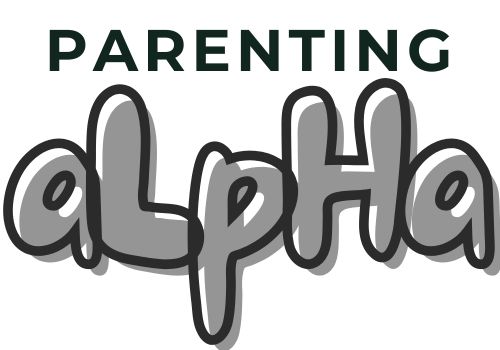The family unit is the foundation of society, but what does “family” even mean anymore, and what dynamics shape our families today? The truth is, the concept of family has undergone profound transformations over the past few decades.
Today’s families come in all shapes and sizes, from single-parent households to multigenerational homes with same-sex couples. These changes reflect broader societal shifts, technological advancements, and evolving cultural norms. As family structures become increasingly diverse, so do the approaches to parenting.
This article explores this new landscape of family dynamics and parenting approaches, highlighting how they shape the development and well-being of children.
How the Modern Family is Structured: A Diverse Landscape

The concept of family has undergone plenty of transformation in recent times. Gone are the days when the nuclear family – a married couple with biological children – was the sole societal norm. Today, families come in a kaleidoscope of colors, each offering a unique environment for children to grow.
Here are some of the most common modern family structures:
1. The Age-Long Nuclear Family
While not as prevalent as in the past, the nuclear family with two married parents and biological children remains a cornerstone of modern society. These families often provide a stable and nurturing environment for their offspring.
2. The Single-Parent Households
Single-parent families, led by either mothers or fathers, are on the rise. These families demonstrate immense strength and resilience, with the single parent taking on the responsibilities traditionally shared by two. Children in such families often develop a strong sense of independence and resourcefulness.
3. Blended Families
Remarriage and step-siblings are becoming increasingly common. Blended families bring together children from previous relationships, creating a unique family dynamic. While challenges may arise in establishing new routines and fostering connections, blended families offer children the love and support of multiple parents and a larger sibling group.
4. Multigenerational Families
In multigenerational families, grandparents or other relatives live alongside the core family unit. This arrangement provides invaluable support to parents, especially those juggling work and childcare. Additionally, it allows children to benefit from the wisdom and guidance of older generations, which promotes a strong sense of cultural continuity.
5. The LGBTQ+ Family
Same-sex couples are building families through adoption, fostering, or surrogacy. These families provide loving and stable homes for children, challenging traditional notions of family structure and demonstrating the power of love in its many forms.
6. The Child-Free Families
An increasing number of couples and individuals are consciously choosing not to have children. This decision can be driven by factors such as a desire for personal freedom, career focus, or a preference for a different lifestyle. Child-free families often enjoy strong bonds with their partners, pets, or close friends, often creating fulfilling and meaningful lives on their own terms.
Modern Parenting Styles:

1. Authoritative
Authoritative parenting is often viewed as the most effective and balanced approach. These parents set clear expectations and establish rules but do so with a nurturing and supportive demeanor. They encourage open communication and provide reasoning behind their guidelines, fostering an environment where children feel respected and heard.
This style helps children develop independence, self-discipline, and strong social skills. Authoritative parents strike a balance between permissiveness and control, guiding their children towards becoming responsible, confident, and well-adjusted individuals.
2. Authoritarian
Authoritarian parents prioritize obedience and discipline, often employing a strict and controlling approach. They set high standards and enforce rules rigorously, expecting unquestioning compliance from their children. This style can lead to a lack of warmth and open communication, making children feel less valued and understood.
While it may result in well-behaved children in the short term, it can also foster resentment, low self-esteem, and poor social skills in the long run. Children raised in authoritarian households may struggle with independence and decision-making, as they are accustomed to rigid control rather than guidance.
3. Permissive
Permissive parents are indulgent and lenient, often avoiding setting firm boundaries or enforcing consistent rules. They prioritize their children’s happiness and freedom, allowing them significant leeway in their behavior and decisions. While this approach can create a close and affectionate parent-child relationship, it may also lead to issues with self-regulation and authority.
Children raised by permissive parents may struggle with discipline, exhibit impulsive behavior, and have difficulty respecting limits and rules set by others. Despite the warmth and nurturing environment, the lack of structure can hinder the development of responsibility and self-discipline.
4. Uninvolved/Neglectful
Uninvolved parenting, also known as neglectful parenting, is characterized by a lack of responsiveness to a child’s needs and minimal involvement in their lives. These parents provide little emotional support, guidance, or supervision, often due to their own challenges, such as mental health issues, substance abuse, or overwhelming personal circumstances.
This neglectful approach can severely impact a child’s development, leading to issues with attachment, self-esteem, and overall well-being. Children in such environments may feel abandoned and unimportant, which can manifest in academic struggles, behavioral problems, and difficulty forming healthy relationships.
Addressing the underlying issues and fostering a more engaged and supportive parenting style is crucial for the child’s development and emotional health.
Impact of Technology on Family Dynamics

Social Media and Parenting
Social media has transformed how parents and children interact and share their lives. It offers both opportunities for connection and challenges related to privacy and comparison.
Digital Literacy for Parents and Children
Ensuring both parents and children understand and navigate digital spaces safely is crucial. This includes teaching responsible use of technology and understanding its potential risks.
Balancing Screen Time
Finding a healthy balance for screen time is essential in modern households. Excessive screen use can impact physical health, sleep, and face-to-face interactions.
Cultural Influences on Family and Parenting

Cross-Cultural Comparisons
Parenting styles and family structures vary widely across cultures. Understanding these differences can enrich our perspectives and approaches to family life.
Impact of Cultural Shifts
Cultural changes, such as shifts in gender roles and increased acceptance of diverse family structures, influence parenting practices and family dynamics.
Challenges and Strategies in Modern Parenting
In today’s ever-evolving world, raising children presents a unique set of challenges for parents. From navigating the ever-present influence of technology to fostering strong emotional connections in a world that can sometimes feel isolating, modern parenting requires a strategic approach.
Here are just a few scenarios:
Work-Life Balance
Balancing professional responsibilities with family life is a significant challenge for many parents. Strategies include flexible work arrangements, shared parenting responsibilities, and prioritizing quality family time.
Mental Health and Well-being
Parents’ mental health profoundly impacts their ability to care for their children. Seeking support, practicing self-care, and fostering open communication within the family are vital.
Positive Discipline and Communication
Effective parenting involves positive discipline strategies that promote learning and growth rather than punishment. Open, honest communication helps build trust and understanding.
The Last Word
Understanding modern family structures and parenting styles is crucial for navigating the complexities of contemporary family life. Each family is unique, shaped by its own dynamics, challenges, and strengths. By embracing diversity and fostering positive, supportive environments, families can thrive and contribute to the well-being and development of their members.
Acknowledging these evolving family dynamics and parenting approaches can lead to stronger, more resilient communities. By supporting diverse family structures and promoting effective parenting practices, we can create a nurturing environment for all children to grow and succeed.





Leave a Reply